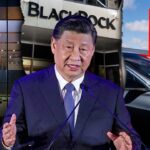Electric vehicle start-up Arrival has produced the first battery van at its UK factory, saying it “proves” the company’s micro-plant concept works as the business embarks on the challenge of initiating large-scale production.
The company, which is backed by Hyundai and listed last year, aims to begin manufacturing of its delivery van for UPS before the end of the year, after conducting more trial production runs at its new factory in Bicester and ironing out its supply chain.
The group is built on the idea that using heavily-roboticised “microfactories” will let it break even much faster than using traditional large plants favoured by the motor industry.
Despite delays and the need to strip back plans to open its first factory in the US, founder and chief executive Denis Sverdlov said the company had finally shown the idea was viable. “Did we achieve what we said we would? Yes. Did we do it on time? No.”
He admitted the process was “more difficult than expected” and that the company planned to make more models before beginning production for customers.
It marks a milestone for a business that, like many start-ups, has struggled both with industrialisation and with falling investor sentiment.
The company listed in March last year through a reverse merger with a Special Purpose Acquisition Company, but its stock has dropped by more than 90 per cent since.
Arrival cut a third of staff earlier this year and shelved plans to make a bus and a ride-hailing vehicle, to preserve cash.
In the three months to June, it lost $89.6mn and said it had $512.6mn of cash. It claims to have around $6bn of orders, including its deal with UPS.
The business still expects to raise additional funds next year and will remain several years from profitability even after it begins generating revenues from selling its vans, it said on Friday.
Arrival has “multiple avenues to raise capital”, including returning to shareholders for more cash, chief financial officer John Wozniak said.
Sverdlov said the business would become cash positive within two to three years of initiating large scale production.
While most new electric vehicle start-ups, from Tesla to Rivian, have struggled to get production going, Arrival believes its factory approach will help it avoid some of the snares.
Partly this is because it is more vertically integrated, but also the lack of a traditional “production line” means it is able to add components to a vehicle in the order they arrive, or hold some vehicles without disrupting wider production.
“We will definitely have our own production hell,” says Sverdlov, referring to Elon Musk’s now-famous assessment of Tesla’s manufacturing problems. “The question is the quantum of it.”
The company has secured all of the chips it needs into next year, though remains beholden to suppliers because there are more than 700 parts that go into the vehicle, he added.
There are “thousands of small things” that could still go wrong with production, he said. “When one thing doesn’t work on time, it has an impact on all things.”
Read the full article here







